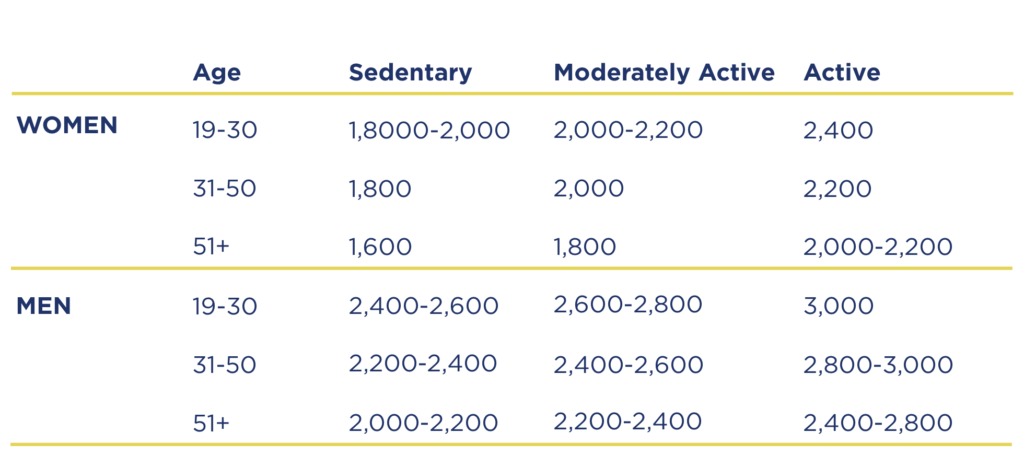
Americans have a lot of questions about calories. One of the 10 most-searched health topics on Google last year was: How many calories should I eat per day?
The answer, of course, depends on more questions: are you a man or a woman? Younger or older? Very active or not so much? Looking to lose weight, gain weight or hold steady? See below for some answers and resources.
Calories are by no means the only way to gauge whether a food is a healthy or unhealthy choice. An avocado may have the same number of calories as a donut, but only one of them fuels your body with heart-healthy fats, fiber, and 20 important vitamins and minerals (hint: it’s not the donut). The quality of your food matters to your body.
Of course, quantity matters, too. Understanding how many calories your body needs gives you a way to check in on whether you’re eating enough, or too much. The chart below offers some general guidelines for adults who want to maintain their weight and avoid weight gain.
But what if you want to lose weight, or to bulk up a little?
The National Institutes of Health offers an online Body Weight Planner that calculates a daily calorie target both for maintaining your weight and for reaching a goal weight by a specific date. It also lets you factor activity into your plan. (Caution: if you are more than 100 pounds overweight, most online calculators, like this one, will over-estimate your calorie needs and shouldn’t be used.)
Whatever your goal, remember that the quality of your calories is just as important as the quantity. Don’t just count your calories — make your calories count.
U.S. dietary guidelines: estimated calorie needs per day

If you’re interested in learning more about nutrition, the dietitians at The Portland Clinic provide information and tools needed to help patients establish a lifestyle of eating and exercise that supports their health. Learn more about our nutrition services.


